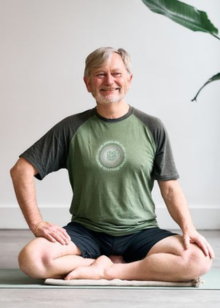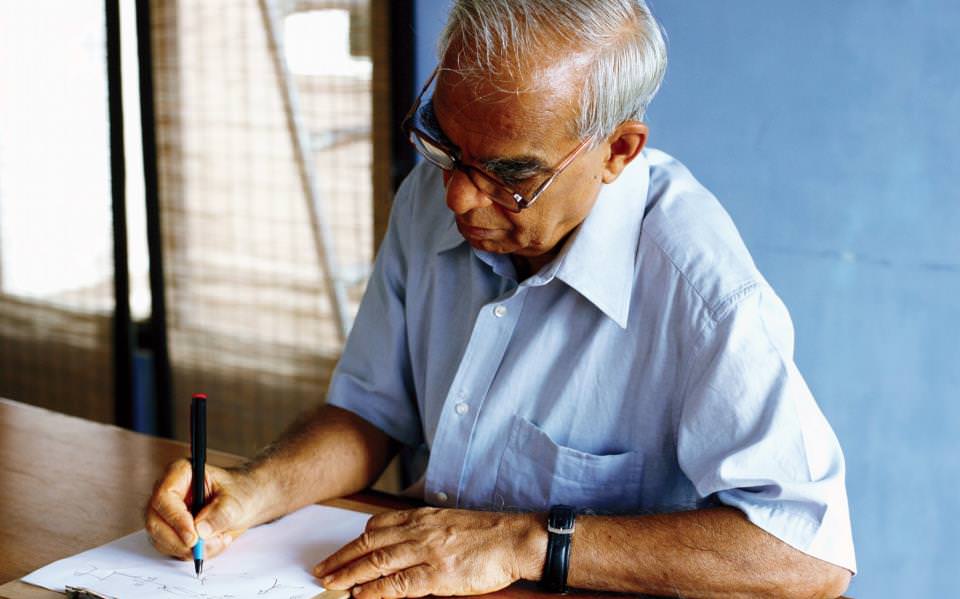Image: The official Sir TKV Desikachar Facebook page
The light has expanded and is continuing to guide us beyond boundaries of space and time.
After an extraordinary life of service and healing, Sir TKV Desikachar reached the lotus feet of the lord on 08 August 2016 at 2.45am India Time.
This is the announcement that was posted on T. Krishnamacharya’s Facebook page two days ago. It was widely known that Desikachar’s declining physical health followed a longer struggle over several years with a decline in mental health. The post goes on to say that a traditional Indian family funeral will take place soon with an international memorial meeting for all his students around the world later in the year.
We remember his family and his extended family of students at this time.
We also remember and celebrate his contribution to the world of yoga.
TKV Desikachar had the very best of teachers. His father. And his father was none other than T. Krishnamacharya, who is known as the ‘the father of modern yoga’. Krishnamacharya was also teacher to BKS Iyengar. Desikachar continued to study with his father until the day he died in 1989. He had total belief in his father and his teaching. He’d founded the Krishnamacharya Yoga Mandiram in 1976 to honour his father and continue his teachings.
‘His father was his Guru and God. He treated his values as religion.’
Having lived his early life in Mysore, he followed his father to Madras, where he was teaching yoga. Back in the 1960s, yoga did not have the worldwide respect that it has now. Teaching yoga was not seen as a serious profession. It was when TKV Desikachar started teaching the famous philosopher J. Krishnamurti that yoga started to gain in popularity. Krishnamurti was so pleased with the improvement in his health that he encouraged those who came to him to take up yoga. He invited Desikachar to accompany him to Europe and his followers there soon began to be interested in yoga too.
Throughout his life, TKV Desikachar expanded on his father’s teachings by focusing on the therapeutic aspects of yoga practice. Desikachar could quickly diagnose ailments and firmly believed that Vedic chanting could cure any ailment. He explored the adaptability of a yoga practice to meet each student’s individual needs. He demystified and interpreted his father’s teachings with a practical approach. He developed tailor-made yoga programmes and called this style viniyoga.
TKV Desikachar was 78 when he died. One comment expressed surprise that he did not live longer. The assumption is that all yoga gurus live long, long lives. However, yoga does not guarantee you a long life. How could it? But yoga does hold the promise of a life well lived.
As TKV Desikachar himself said –
‘The success of yoga does not lie in the ability to perform postures, but in how it positively changes the way we live our life and our relationships.’
Yoga is not some magical philosopher’s stone. But yoga does have an incredible transformative power to positively change our life and our relationships.
In his lifetime, TKV Desikachar transformed the way yoga is practised. He made a real difference to many, many lives. He led an extraordinary life of service and healing. His was a life well lived.














